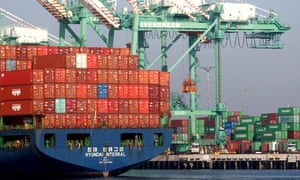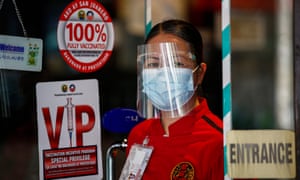
12.39am EST00:39
Patients who survive severe Covid are more than twice as likely to die over the following year than those who remain uninfected or experience milder virus symptoms, a new study has revealed.
The research, published in Frontiers in Medicine, suggests that serious coronavirus infections may significantly damage long-term health, showing the importance of vaccination.
The increased risk of dying was greater for patients under 65, and only 20% of the severe Covid-19 patients who died did so because of typical Covid complications, such as respiratory failure.
“We conducted a previous study that showed that patients with severe Covid-19 who recovered were at significantly greater risk of being hospitalised in the subsequent six months,” said ProfArch Mainous of the University of Florida, the lead author of the study. “This new study extended that to investigate mortality risk over the next 12 months.”
Read the full story here.
10.27pm EST22:27
The emergence of the Omicron variant means that the Covid-19 pandemic remains the “chief source of uncertainty to the global economy and a driver of financial market volatility”, according to the ratings agency Moody’s.
Hopes that businesses might be able to return to normal operation in the coming months could be dashed by Omicron and the subsequent restrictions on travel and other freedoms already imposed by many countries around the world, the analysts said.
It could therefore increase pressure on supply chains and worsen existing shortages of labour and materials that have helped push inflation up across the world, most recently seen with Tuesday’s 4.9% inflation figure in the eurozone.
The emergence of the new variant also comes during a period of fragile economic recovery, with stretched supply chains, elevated inflation and labor market shortages,” Moody’s said.
“Business disruption resulting from the spread of the new variant could prevent supply chain stresses from easing, dampening productive capacity and stoking further cost pressures in sectors with exposure to global supply chains. On the demand side, fear of infection could prevent a large proportion of individuals from engaging in economic activity that requires close contact. Thus, demand could diminish for services ranging from hospitality to travel, at a time when holiday-related spending would usually ramp up.”








